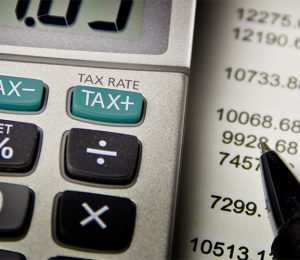photo: Shannon Kelly
Filing taxes as a single parent can be complex, especially if this is your first time. Similarly, joint or shared-custody situations pose some challenges once each parent starts to think about their individual tax return. Cleo Hamel, a senior tax analyst with H&R Block Canada, shares some tips and tax breaks for single parents to keep in mind.
- Universal Child Care Benefit: For any children younger than six, you will receive $100 per month under the Universal Child Care Benefit program, but it is considered taxable income. If you are single, the government now allows you to report this as income for one of your children.
- Eligible dependants: Single parents are allowed to claim the $11,038 amount for an eligible dependant for one of their children. This is sometimes referred to as “equivalent to spouse” because it is the same amount you may claim for a spouse with no income. To use the credit, you have to live in and maintain the home in which you support your child.
- Joint custody: If there are two children and the parents share joint custody, each may claim the equivalent to spouse amount for one child. But if you pay child support, you cannot claim this credit.
- Child Tax Credit: The $2,234 Child Tax Credit is available for any child younger than 18. In primary-custody situations, the main parent is the only one who can claim this credit. For joint custody, parents need to agree on which parent will claim this credit. If they can’t agree, no one will be able to use it.
- Child Tax Benefit (CTB): This benefit is calculated by household income level, so the amount may increase after separating as it will now be based on one income. The rates and amounts vary by province and there is a supplement for lower-income families earning between $25,584 and $43,953. In joint custody situations, the benefit is split.
- Child support: For single parents receiving child support, if the agreement is dated after May 1, 1997, these payments are neither taxable nor deductible. However, they do need to be reported on the tax return.
- Child activities: The Children’s Fitness Amount can be claimed by either parent but cannot exceed $500 in total per child. This also applies to the Children’s Arts Amount.
- Childcare: Whether you send your children to a daycare or a babysitter, childcare expenses can be claimed. If you are paying a family member to look after your children, this can be claimed as long as he or she is 18 or older and provides a receipt with a SIN. The income will also need to be reported on his or her tax return. Be sure to keep all your receipts for childcare expenses, since they are among the most commonly reviewed credits by the Canada Revenue Agency.
- Changing status: If you move in with the other parent of your child, you will immediately be considered common-law for tax purposes. If you move in with someone who is not your child’s parent, you are only considered common-law after you have lived together for a year. Whether you get married or become common-law, you must report the change to the Canada Revenue Agency using a RC65 Form. This will affect your ability to claim the equivalent to spouse amount as well as your Child Tax Benefit calculation.
- Claiming dependants: Once children turn 18, they are no longer considered a dependant for tax purposes even if you continue to support them. The only exception is infirm children.
Your custody situation will impact what you are eligible to claim. If you need some guidance on what you can and cannot claim, talk to an accountant, or consider using an online program like H&R Block’s Tax Software (www.hrblock.ca) which will walk you through step-by-step tips to help identify every possible deduction or credit and calculates your return as you go.




